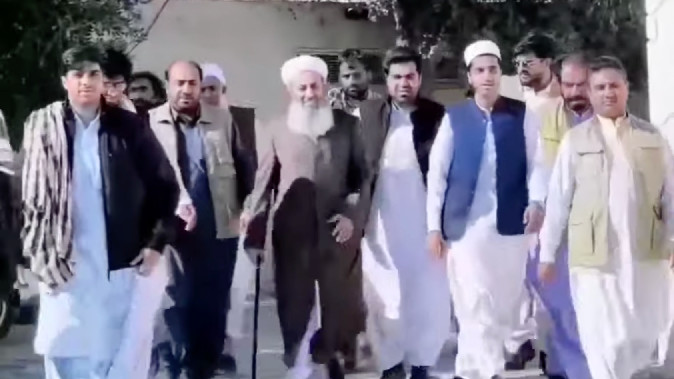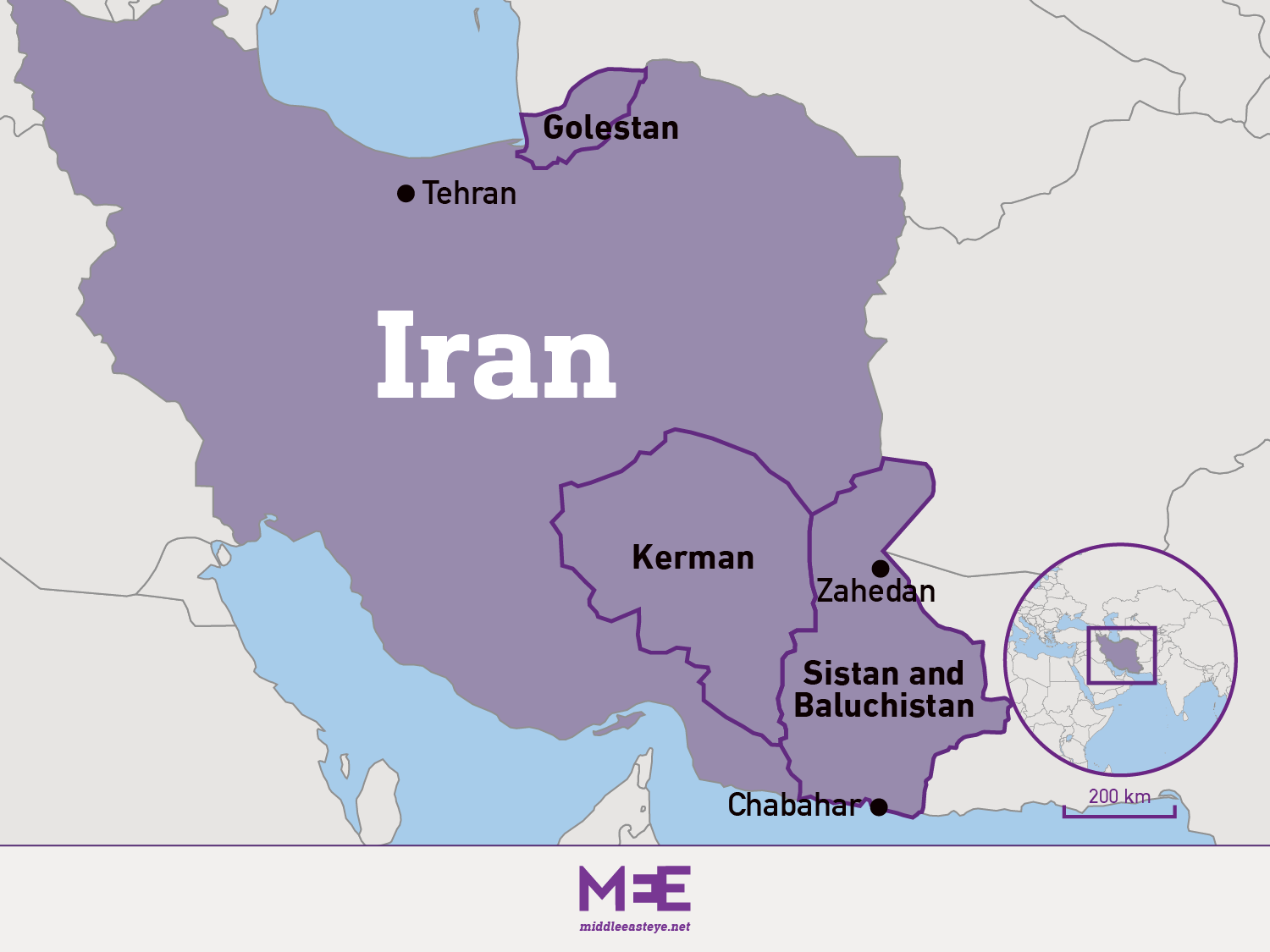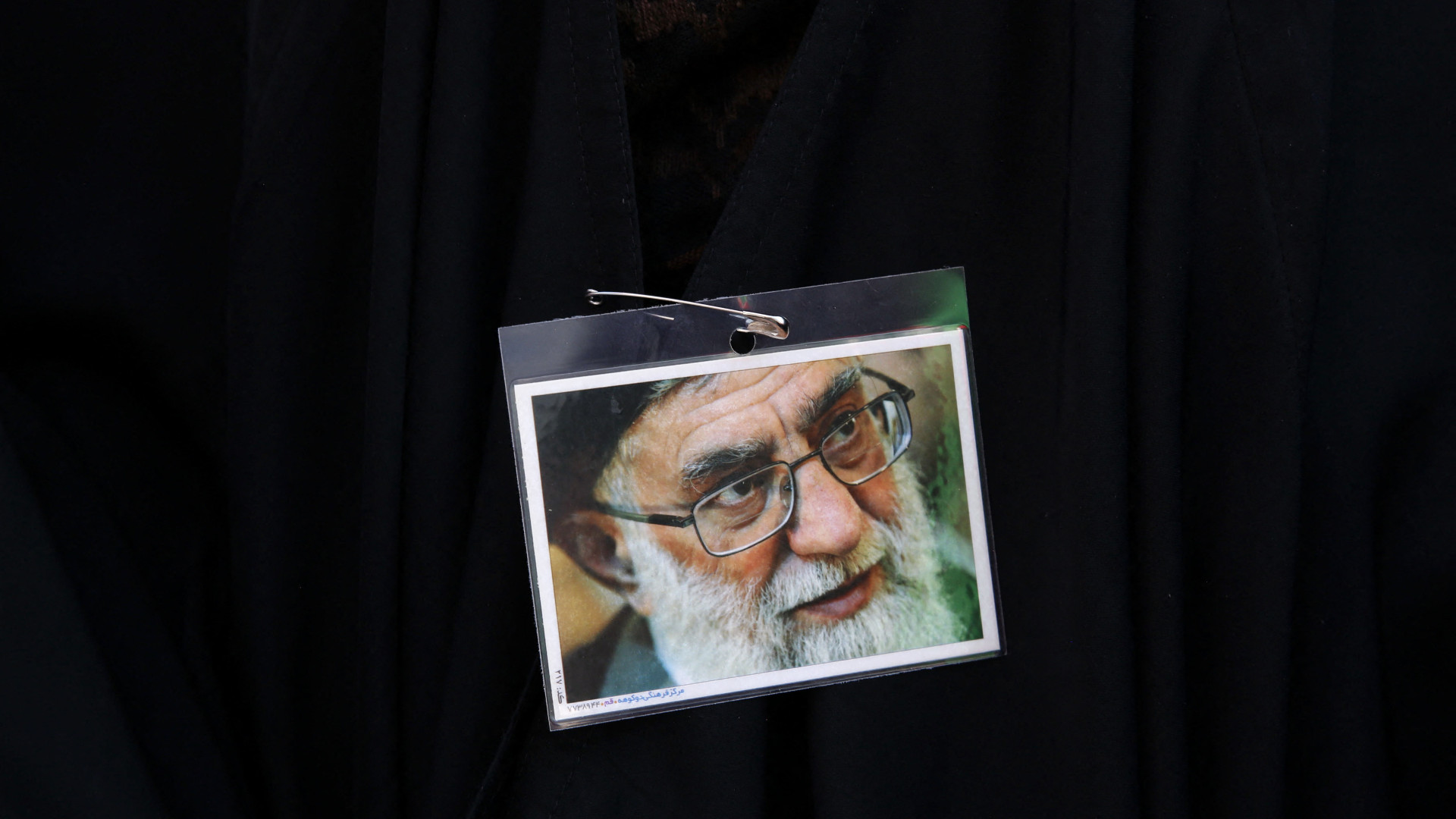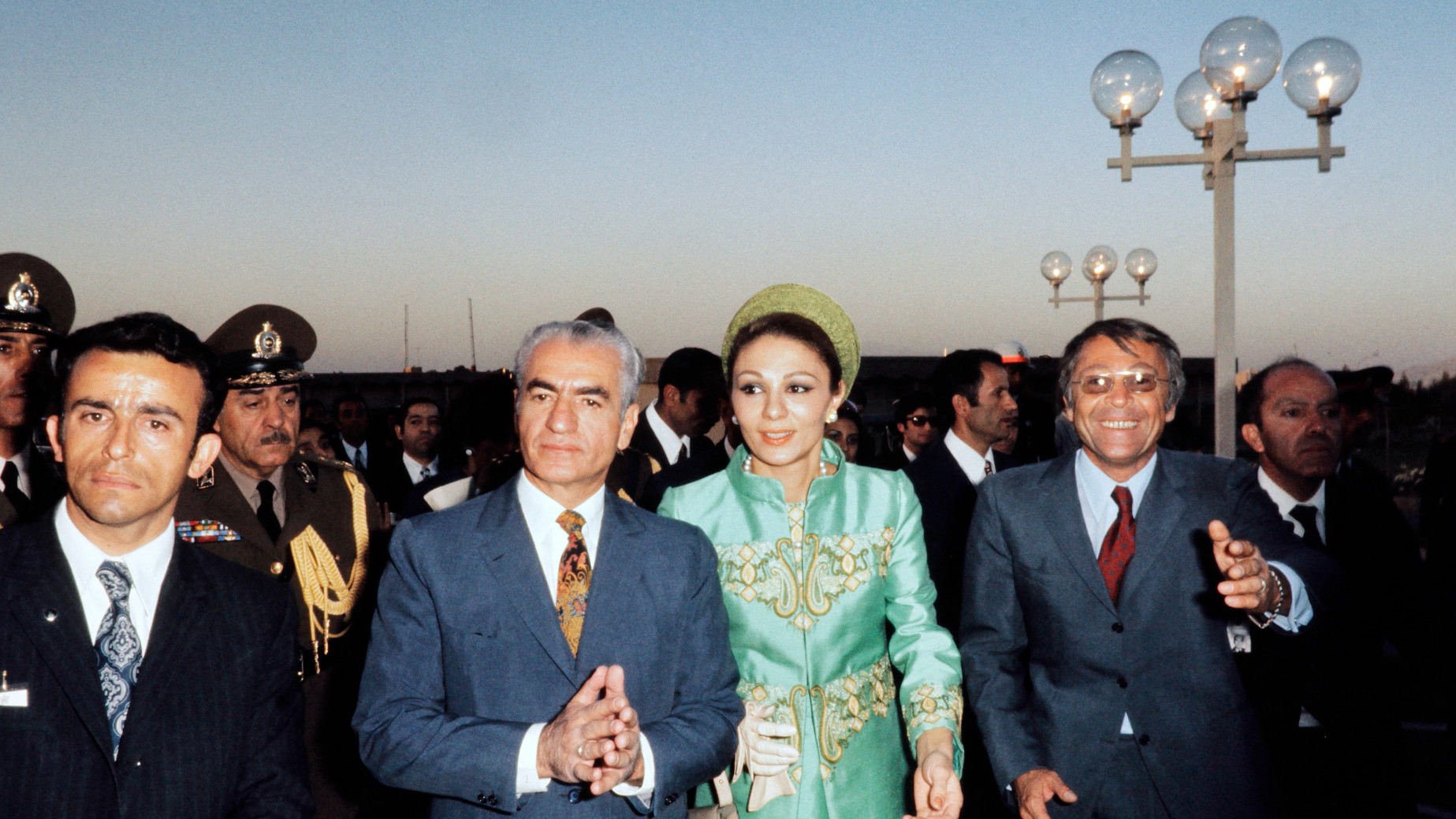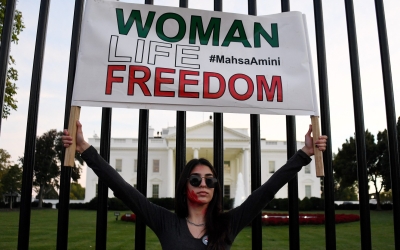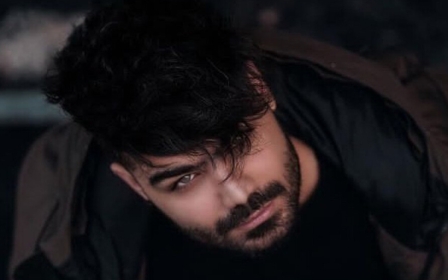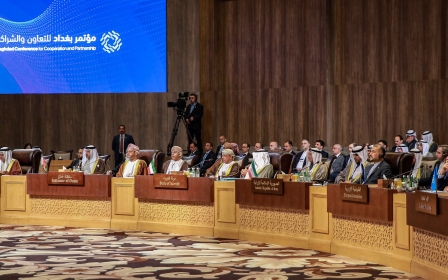Meet Molavi Abdolhamid, Iran’s anti-establishment Sunni cleric
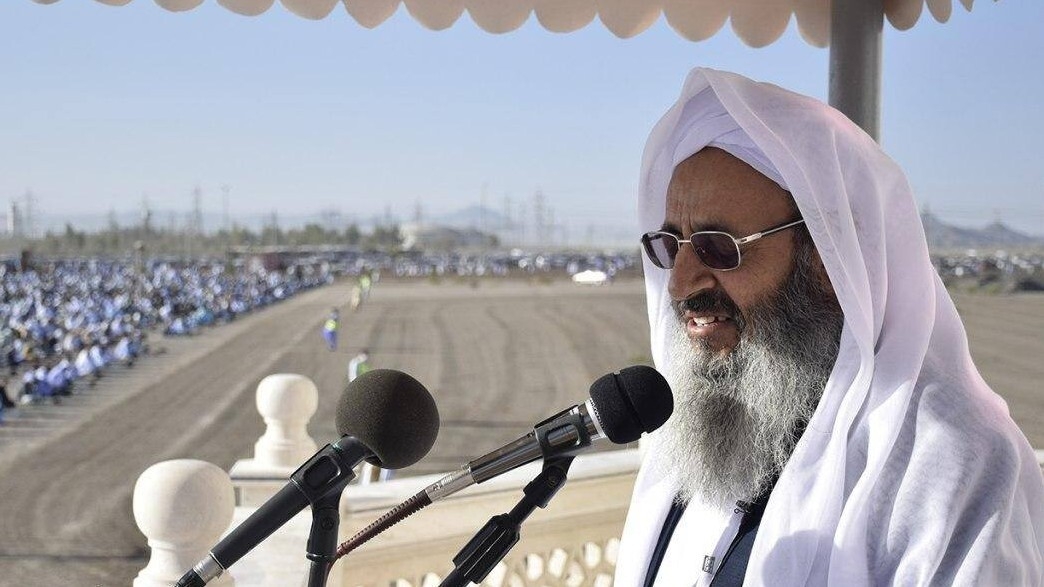
Unlike most of the Shia imams preaching sermons across Iran every Friday, Molavi Abdolhamid does not hold the barrel of a Kalashnikov when he speaks, as a symbol of his readiness for jihad.
The Kalashnikovs do appear, however, when the Sunni religious leader visits dangerous remote areas of his home state - and the country's most impoverished - Sistan and Baluchestan.
Abdolhamid, whose real name is Abdolhamid Ismaeelzahi (Molavi is a religious term of respect), travels in a large convoy of SUVs, guarded by men in traditional Baluch outfits - a shalwar kameez and a long shawl over the shoulder - occasionally holding rifles.
Unemployment, underage marriage and the trafficking of people and narcotics have been on the rise for decades in the region, as well as state executions related to the country’s years-long drug wars. The Baluch, who are mostly Sunni, have long been targeted by Iranian authorities. They get few socioeconomic opportunities, and arbitrary arrests and disappearances are common.
New MEE newsletter: Jerusalem Dispatch
Sign up to get the latest insights and analysis on Israel-Palestine, alongside Turkey Unpacked and other MEE newsletters
But despite the armed show of strength, Abdolhamid is well-loved. He was born and lives in Zahedan, the region's capital, and has long been an advocate for Sunni and Baluch rights.
For decades, he has been a popular and influential figure among the Sunni communities of his home province and the regions of Kerman and Golestan.
But in recent months, after an abrupt U-turn, Abdolhamid has become nationally famous. Having once backed Iran’s ultra-conservative president, Ebrahim Raisi, he is now known for his anti-establishment speeches, after siding with protesters as mass demonstrations and deadly repression have thrown the country into turmoil.
The Black Friday sermon
Friday 30 September 2022 was a watershed moment for Abdolhamid.
The topic of that day’s sermon in Zahedan was the story of a teenage Baluch girl allegedly raped by a police colonel in the port city of Chabahar, several hundred miles away in the south of the province. The case had gone unsolved and the government, Abdolhamid said, was at fault.
When prayers ended, Baluch worshipers, angry at authorities, amassed in front of a Zahedan police station to protest.
Security forces and the Islamic Revolutionary Guard Corps (IRGC) responded with immediate, deadly force. They shot and killed over 80 people, including children, in what became known as Iran’s Bloody Friday.
At every Friday prayer since, Abdolhamid has openly voiced support for protesters and sharply criticised the country's clerical system.
"With munitions and militarism, no one can save the establishment,” he stressed on 23 December, criticising authorities’ brutal crackdown on the protests that rocked the country after the death of a young woman, Mahsa Amini, in police custody. “The response to a stone is not a bullet."
"Release the young men and women [arrested in demonstrations], do not accuse them of moharebeh,” he had urged the week before, referring to a law in Islamic Sharia against “waging war against God” that the judiciary uses to execute dissidents and protesters. “Even if they are moharebeh, do not sentence them to the death penalty."
Abdolhamid’s sermons have attracted the attention of millions of Iranians, including Shia Iranians and atheists. He is now the most respected Sunni cleric in central and eastern Iran and the country’s best-known Sunni religious leader.
Well-known activists share his criticisms, but Abdolhamid has a huge platform, using Friday prayer - traditionally used to promote the establishment line - to directly challenge the clerics ruling the country.
Ayatollah Khamenei v Molavi Abdolhamid
Abdolhamid’s speeches have not gone unnoticed in the capital, Tehran. Documents leaked by hacktivist group Black Rewards in November revealed that Iran's Supreme Leader Ayatollah Ali Khamenei had issued instructions on how to handle Abdolhamid.
"The Supreme National Security Council and Police concluded to arrest Molavi Abdolhamid,” read a report of unknown origin for Hossein Salami, the chief commander of the IRGC.
“However, the leader of the revolution ordered not to arrest him but to disgrace him," the document said.
An audiotape leaked in late November, recorded during a secret recent meeting between a deputy of the paramilitary Basij organisation and IRGC-affiliated journalists (mainly from Fars news), revealed that the establishment's "disgrace campaign" had focused on the situation of women being deprived of their basic rights in Sistan and Baluchistan and Abdolhamid's stance on the Taliban's return to power in Afghanistan.
Following the Taliban's victory, he congratulated them and told Iranians: "Today's Taliban are different from 20 years ago."
When, on 19 December, the Taliban banned women from private and public universities, he condemned the decision and urged them to reverse it.
Abdolhamid gave an impassioned speech in response to Khamenei's order: "Only God gives and takes back [people's] honour."
So far, he has been neither arrested nor disgraced.
The man from Galu Gah
Molavi Abdolhamid was born in the small, remote village of Galu Gah, some 90km southwest of Zahedan, in 1947. After finishing primary school, he was sent across the border to Pakistan to pursue religious studies.
He attended several schools in the Sindh and Punjab provinces before graduating in the 1970s and returning to Iran.
There, Abdolhamid taught at the newly opened Zahedan Seminary, whose founder and director was influential Sunni religious leader Maulana Abdul Aziz. Abdolhamid soon married his daughter.
When the shah was overthrown in 1979, Maulana Abdul Aziz joined the 75-member Assembly of Constitution Experts, who finalised the draft of the post-revolution constitution.
But the followers of Ayatollah Ruhollah Khomeini, the country’s first supreme leader, quickly accrued total power, clearing the way for conservative Shia clerics.
This was a dark period for dissident Sunni clerics. Many, such as Ahmad Moftizadeh, Farooq Farsad and Mamusta Mohammad Rabiei, were killed by authorities, while others, like Abdol Rashid Rigi, Mohammad Ghalandar Zehi and Mohammad Baraei, were thrown in prison.
Maulana Abdul Aziz felt he had no choice but to step away from politics and focus on the seminary. After he died in 1987, his son-in-law, Molavi Abdolhamid, took over the school and became the religious leader of Iran’s Baluch people, as well as the Friday prayer imam in Zahedan.
Political influence
Abdolhamid began his involvement in Iranian politics when the country’s reformists - who want equal rights for minority groups and greater engagement with the international community - organised a nationwide campaign to unify all anti-conservative activists and politicians during the 1997 presidential elections.
Abdolhamid threw his weight behind reformist candidate - and eventual winner - Mohammad Khatami.
Abdolhamid supported reformist candidates in every election until 2021, when - frustrated by unfulfilled promises about equal rights for ethnic and religious minorities - he switched sides, supporting arch-conservative presidential candidate Ebrahim Raisi.
"The participation of Sunni people in elections reinvigorates the contest, but when the candidates win the election, they do not meet the promises they made to the Sunni people," he said in a speech on Eid al-Fitr one month before the vote.
His support for the conservatives lasted until Bloody Friday.
Before the 2022 uprising, he had always demanded equal rights for Iran’s Sunnis, but his unflinching criticisms have become increasingly far-reaching, making him a leading figure of the push for change.
In his most recent Friday speech, he attacked the very foundation of the establishment, the "unification between religion and state".
"Religion should not be exploited to give credit to an Islamic state… Islamic states will only be legitimate at the time a majority of people want them."
Middle East Eye delivers independent and unrivalled coverage and analysis of the Middle East, North Africa and beyond. To learn more about republishing this content and the associated fees, please fill out this form. More about MEE can be found here.


